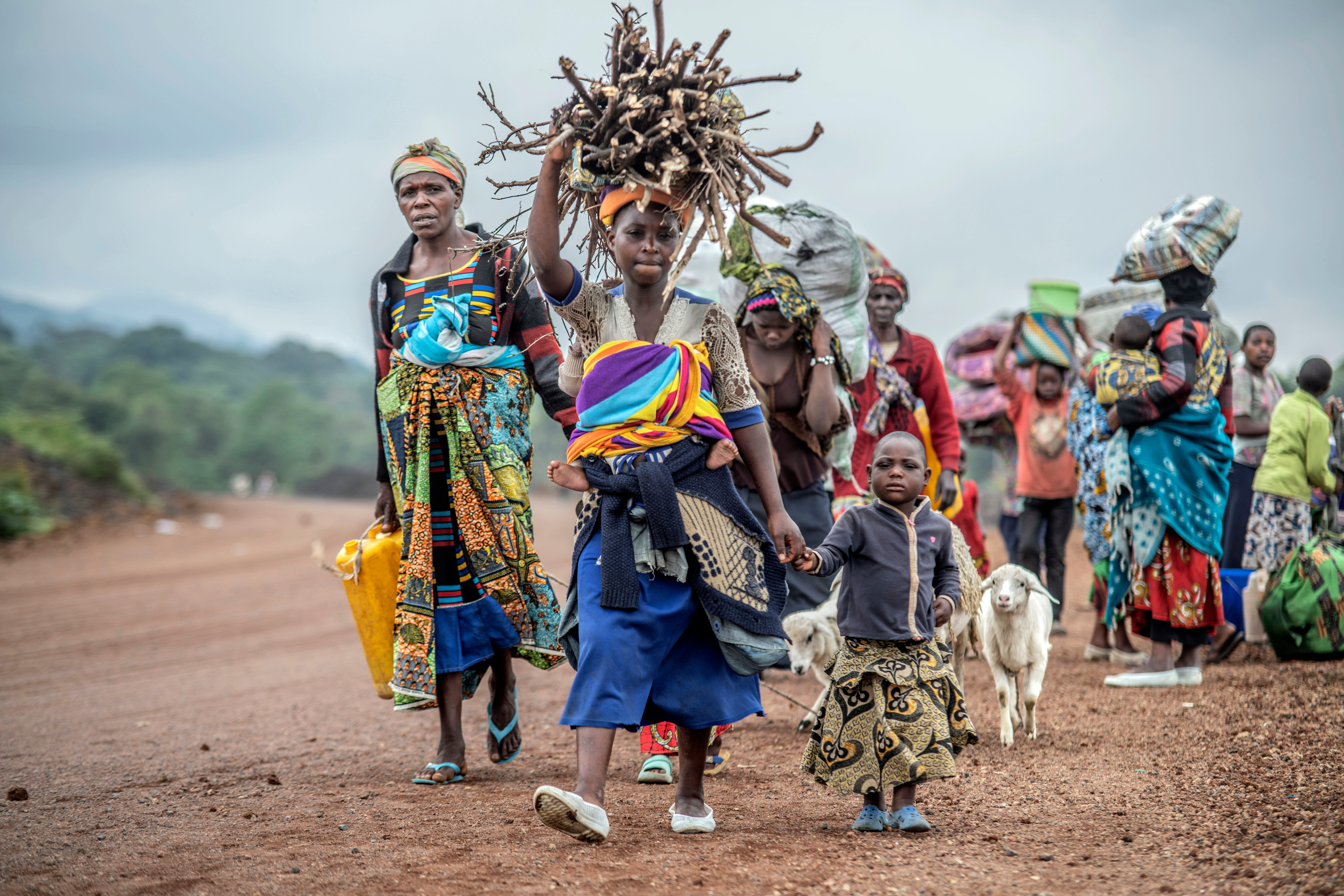An alarming humanitarian crisis and massive sexual violence wrack eastern Congo, UN official says
A senior UN official says the humanitarian situation in conflict-wracked eastern Congo has deteriorated alarmingly in the past 18 months with 8 million people in urgent need of assistance and women and girls subjected to sexual violence on a massive scale -- just in three provinces

The humanitarian situation in conflict-wracked eastern Congo has deteriorated alarmingly in the past 18 months with 8 million people in urgent need of assistance and women and girls subjected to sexual violence on a massive scale -- just in three provinces, a senior U.N. official said Tuesday.
Edem Wosornu, the U.N. humanitarian office’s operations director who just returned from a trip to Congo with emergency directors from U.N. agencies and humanitarian organizations, said that what they saw and heard “was shocking, heartbreaking and sobering.”
She said the situation in North Kivu, South Kivu and Ituri provinces “is frankly the worst situation we have ever seen,” and that's in a country where more than 26 million people are hungry and need food.
Wosornu told a news conference that gender-based violence is “being perpetrated on a massive and distressing scale” with more than 35,000 survivors seeking access to treatment and services after attacks in just the first six months of 2023 in the three provinces. Given that only a fraction of survivors report gender-based violence, she said, “the number is likely to be higher.”
Conflict has been simmering for decades in mineral-rich eastern Congo, where Wosornu said more than 130 armed groups are fighting mainly for control of land and mines though some groups are trying to protect their communities.
Fighting spiked in late 2021 when M23, a rebel group linked to neighboring Rwanda which was largely dormant for nearly a decade, resurfaced and started capturing territory. M23 rose to prominence in 2012 when its fighters seized Goma, eastern Congo’s largest city on the border with Rwanda.
Recently, attacks by the Allied Democratic Forces, which is believed to have ties to the Islamic State extremist group, have also spiked along with intercommunal violence.
Gabriella Waaijman, global humanitarian director at London-based Save the Children International who was also on the trip, said Congo has the highest number of grave violations against children and.one of the highest number of displaced people in the world — and the number of internally displaced people grew by a further one million this year.
The scale of suffering and insufficient funding have left humanitarian workers in the impossible situation every day of deciding whether to prioritize water, shelter or medical support for the constant stream of newly displaced people. And one result of the overwhelming needs is that thousands and thousands of children aren’t able to go to school, she said.
The U.N. appealed for $2.3 billion for humanitarian assistance for Congo this year but has received just one-third, $764 million, Wosornu said, and it has been able to help just 1.4 million people, “a fraction of the number of people in need.”
The executive directors group met with Congo’s minister of humanitarian affairs and the military governors of Ituri and North Kivu and stressed the need to improve protection and security for civilians, the responsibility of national authorities to address escalating gender-based violence, and the critical importance of restoring peace which is what every person they met asked for, she said.
Waaijman said money is needed urgently to scale up humanitarian help and save lives, but what people really need is peace “and their government to step up and help them to return home safely or else provide them land so that they can be settled elsewhere and start anew.”
Congo’s vast mineral wealth has fueled war, displacement and hunger, she said, and particularly heartbreaking was to see the impact on eastern Congo’s pygmy community, “one of the last hunter-gatherer communities left on earth.”
“This community has lived in the equatorial jungle for thousands of years, taking from the land only what they need to survive nothing more,” but the fight for cobalt, a key mineral for electric vehicle batteries, and diamonds for engagement rings in jungle areas is destroying their way of life “for good,” Waaijman said.
The emergency directors met with pygmy members in displacement sites where she said they are struggling to survive, with not enough to eat in an unfamiliar environment, and “their rights completely trampled and no accountability.”
Bookmark popover
Removed from bookmarks